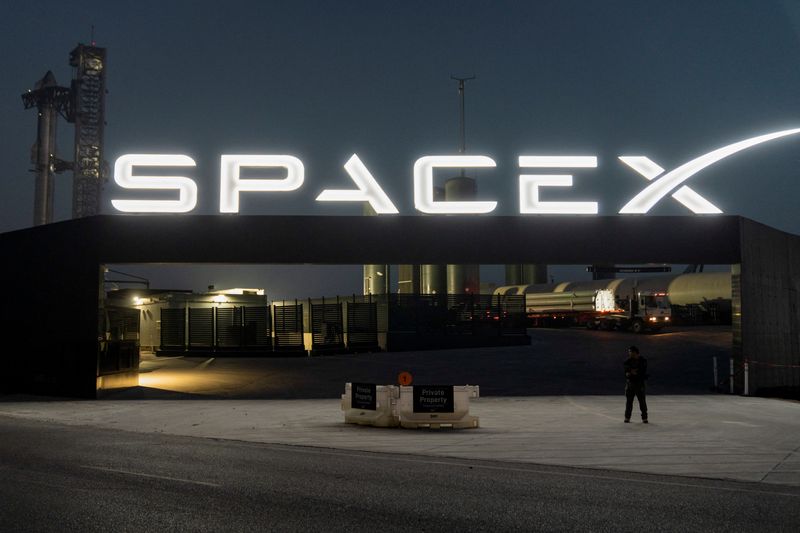BEIJING (Reuters) - Chinese military and state-run media on Sunday accused the United States of threatening global security, days after a Reuters report which found Elon Musk's SpaceX was building hundreds of spy satellites for a U.S. intelligence agency.
SpaceX's Starshield unit is developing the satellite network under a classified $1.8 billion contract with the National Reconnaissance Office (NRO), Reuters reported on Friday, citing five sources familiar with the programme.
A social media account run by the People's Liberation Army (PLA) said the SpaceX program exposed the United States' "shamelessness and double standards" as Washington accuses Chinese tech companies of threatening U.S. security.
"We urge U.S. companies to not help a villain do evil," Junzhengping, an account run by the PLA, posted on social media platform Weibo (NASDAQ:WB) on Sunday. The account has 1.1 million followers.
"All countries worldwide should be vigilant and protect against new and even bigger security threats created by the U.S. government," the post said.
Wang Yanan, chief editor of Aerospace Knowledge, a magazine overseen by the ruling Communist Party, was quoted in an interview as saying the SpaceX satellite project posed "a challenge to global security and stability".
"The United States' high-profile intelligence reconnaissance of countries or regions it is concerned about will inevitably cause some hot issues to become more sensitive or even escalate," Wang told The Global Times, a Chinese state-controlled newspaper, in an interview published on Sunday.
Musk runs other companies including electric vehicle maker Tesla (NASDAQ:TSLA) that has a large manufacturing presence in China. Neither Junzhengping or the Global Times mentioned Musk or Tesla.
In response to the Reuters' story, the NRO acknowledged its mission to develop space-based surveillance systems, but declined to comment on the extent of SpaceX's involvement.
SpaceX, the world's largest satellite operator, did not respond to several requests for comment about the contract.
The planned Starshield network is separate from Starlink, SpaceX's growing commercial broadband constellation that has about 5,500 satellites in space to provide near-global internet to consumers, companies and government agencies.
Chinese researchers in the PLA have over the past two years studied the deployment of Starlink in the war in Ukraine and repeatedly warned about the risks it poses to China.

China has said it also plans to start building its own satellite constellations.
Space X, NRO, and the Pentagon did not immediately respond to requests for comment on China's reaction to the contract.